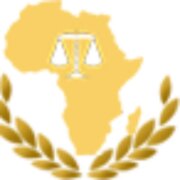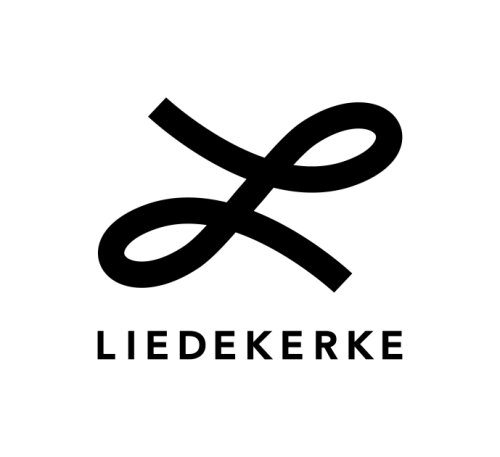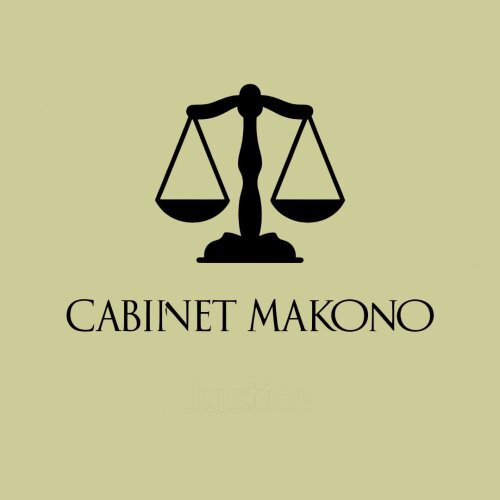Best Mining Law Lawyers in DR Congo
Share your needs with us, get contacted by law firms.
Free. Takes 2 min.
Or refine your search by selecting a city:
List of the best lawyers in DR Congo
About Mining Law in DR Congo
The Democratic Republic of Congo (DR Congo) is endowed with vast mineral resources, including copper, cobalt, gold, diamonds, and coltan. Mining Law in DR Congo governs the exploration, exploitation, and management of these mineral resources. The primary legislation regulating the mining sector is the Mining Code of 2002, amended in 2018, along with its implementing regulations. The Mining Law establishes the rights and obligations of miners, investors, and the Congolese state to ensure responsible, transparent, and sustainable management of mining activities.
Why You May Need a Lawyer
Navigating Mining Law in DR Congo can be challenging due to its complexity, regulatory environment, and interplay with multiple government bodies. Common situations where legal advice is necessary include:
- Securing or renewing mining titles, permits, and licenses
- Negotiating investment agreements or joint ventures
- Complying with environmental and social obligations
- Handling disputes over land rights and concession boundaries
- Understanding tax and customs regulations related to mining
- Complying with local content and employment rules
- Managing conflicts with local communities or government authorities
- Responding to audits, investigations, or penalties
- Ensuring compliance with anti-corruption and transparency requirements
A lawyer with expertise in Congolese Mining Law can guide you through legal procedures, identify opportunities or risks, and interact on your behalf with relevant authorities.
Local Laws Overview
Mining operations in DR Congo are primarily governed by the Mining Code (Law No 007/2002 of 11 July 2002, as amended in 2018), supported by the Mining Regulations and related decrees.
- Types of Mineral Rights: The legal framework recognizes several types of mining titles, including research permits, exploitation permits, and artisanal mining permits. Each has specific requirements and durations.
- Ownership and State Participation: The State is the custodian of natural resources. Mining titles grant holders rights to undertake exploration and exploitation under certain conditions. The State often reserves the right to participate in any mining project, sometimes as a free-carried, minority shareholder.
- Environmental and Social Obligations: Mining title holders must conduct environmental and social impact studies, comply with environmental management plans, and establish rehabilitation funds to restore sites after operations.
- Rights and Protections: Mining rights can be transferred, leased, or used as security, subject to regulatory approval. Title holders are protected against arbitrary cancellation but must adhere strictly to the law.
- Local Content and Taxation: The law sets out requirements for employing Congolese nationals, using local goods and services, and has specific fiscal regimes, including royalties, surface fees, and profit tax.
- Dispute Resolution: Disputes related to mining are generally subject to local courts, though some contracts provide for international arbitration.
Frequently Asked Questions
What is required to obtain a mining permit in DR Congo?
Applicants must submit a complete application, demonstrate technical and financial capacity, conduct feasibility studies, pay applicable fees, and comply with environmental assessment procedures. Permits are usually granted by the Mining Cadastre in coordination with the Ministry of Mines.
Are foreign investors allowed to own mining rights in DR Congo?
Yes, foreign individuals and companies can acquire mining rights, subject to the relevant legal procedures, but the State may hold a minimum stake in exploitation projects and special rules may apply to strategic minerals.
How long is a mining permit valid?
The validity depends on the type of title. Exploration permits are generally valid for up to five years, while exploitation permits can be valid for up to 25 years, renewable for similar periods.
What taxes or royalties apply to mining activities?
Mining operations are subject to various taxes and royalties, including surface area fees, production royalties, corporate income tax, and sometimes additional levies depending on the mineral and project type.
Can mining rights be transferred or sold?
Yes, mining rights may be transferred, assigned, or leased, but such transactions must be approved by the relevant authorities and meet certain legal requirements.
What are my obligations regarding the environment?
Holders of mining titles must conduct environmental impact assessments, implement mitigation plans, monitor operations, and allocate resources for site rehabilitation. Non-compliance can result in fines or the withdrawal of mining rights.
How does the law protect local communities?
The Mining Code requires operators to consult with affected communities, provide compensation where appropriate, and support local development initiatives. Failure to respect these obligations can affect permits.
What happens if there is a dispute over a mining title?
Disputes can be resolved by local courts or through arbitration if agreed in contract. The Ministry of Mines and Mining Cadastre may also mediate administrative issues.
Is artisanal mining legal in DR Congo?
Yes, artisanal mining is recognized and regulated under the Mining Code. Special permits are available, and there are zones reserved for artisanal mining activities.
What are the risks of non-compliance with mining laws?
Failure to comply can result in penalties, suspension, or withdrawal of mining titles, administrative sanctions, reputational harm, and even criminal prosecution in cases of severe violations.
Additional Resources
- Ministry of Mines - The main governmental authority overseeing mining activities in DR Congo.
- Mining Cadastre (CAMI) - Responsible for issuing, renewing, and managing mining titles and permits.
- Congolese Mining Federation (FEC) - Offers support and advocacy for mining operators and investors.
- Ministry of Environment and Sustainable Development - Regulates environmental compliance in mining projects.
- Centre for Expertise, Evaluation and Certification of Precious and Semi-Precious Mineral Substances (CEEC) - Plays a role in certification and exportation of minerals.
- National and international law firms with mining practice groups in DR Congo.
Next Steps
If you need legal assistance in Mining Law in DR Congo:
- Identify your specific legal question or challenge, and gather all relevant documents and information.
- Consult with a qualified lawyer or legal firm experienced in Congolese Mining Law and international mining practices.
- Contact the Ministry of Mines, Mining Cadastre, or professional organizations for recommendations.
- Understand your rights and obligations through an initial legal consultation before making any commitments or investments.
- Proceed step-by-step, ensuring that all applications, contracts, and business dealings strictly comply with the Mining Code and regulations.
Seeking legal advice early and consistently is key to a successful and compliant mining venture in DR Congo.
Lawzana helps you find the best lawyers and law firms in DR Congo through a curated and pre-screened list of qualified legal professionals. Our platform offers rankings and detailed profiles of attorneys and law firms, allowing you to compare based on practice areas, including Mining Law, experience, and client feedback.
Each profile includes a description of the firm's areas of practice, client reviews, team members and partners, year of establishment, spoken languages, office locations, contact information, social media presence, and any published articles or resources. Most firms on our platform speak English and are experienced in both local and international legal matters.
Get a quote from top-rated law firms in DR Congo — quickly, securely, and without unnecessary hassle.
Disclaimer:
The information provided on this page is for general informational purposes only and does not constitute legal advice. While we strive to ensure the accuracy and relevance of the content, legal information may change over time, and interpretations of the law can vary. You should always consult with a qualified legal professional for advice specific to your situation.
We disclaim all liability for actions taken or not taken based on the content of this page. If you believe any information is incorrect or outdated, please contact us, and we will review and update it where appropriate.
Browse mining law law firms by city in DR Congo
Refine your search by selecting a city.














